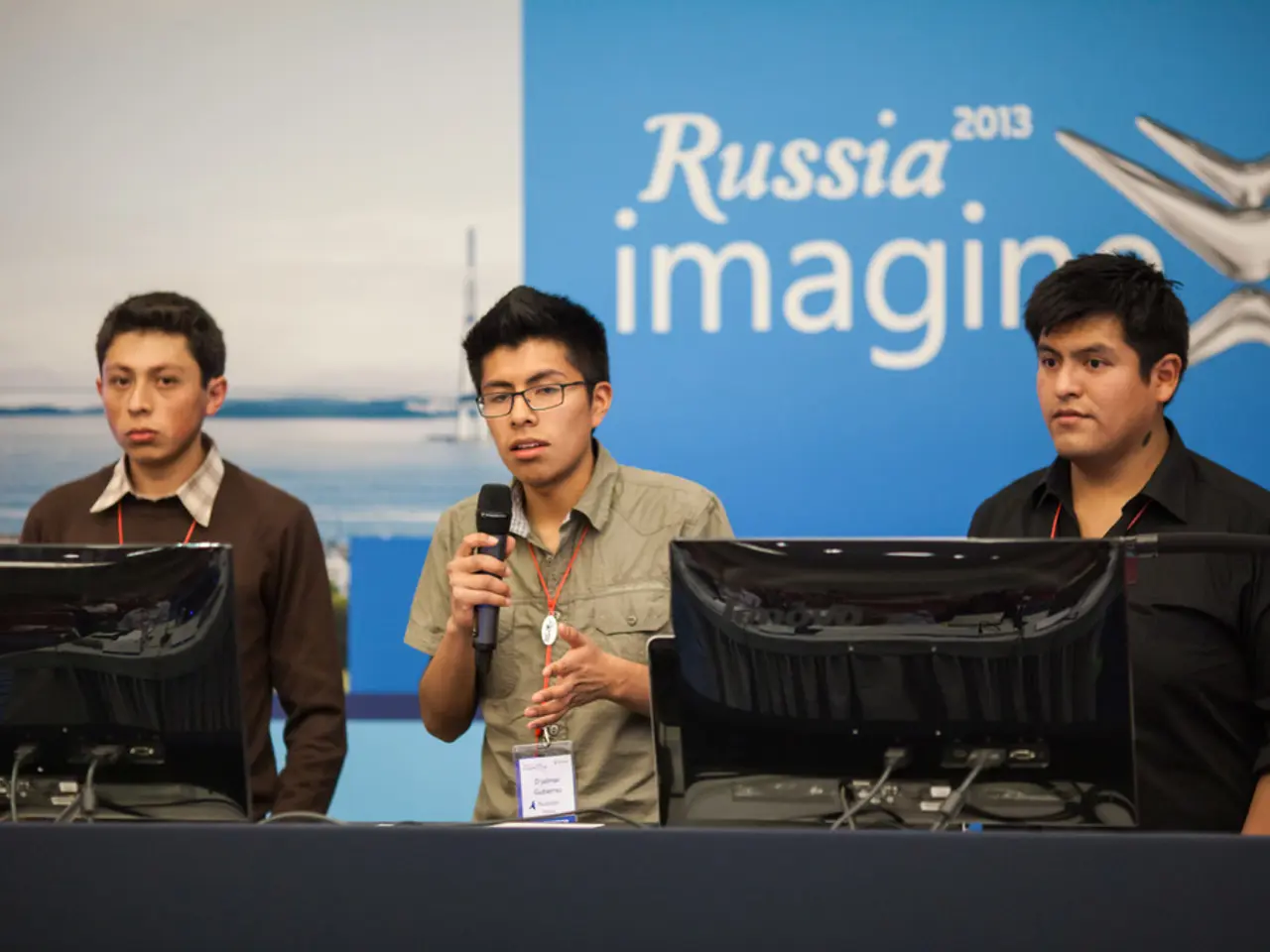Russia's Retail Week deliberated on potential advancements in technology
The retail industry in Russia is undergoing a significant transformation, as highlighted at the 11th International Business and Power Forum "Russian Retail Week - 2025" in Moscow. Industry experts, government representatives, and leading retailers gathered to discuss the latest technological innovations and strategies shaping the future of the industry.
One of the key themes of the forum was the integration of artificial intelligence (AI) into retail operations. Ivan Melnik, a notable industry figure, emphasized the role of AI in accelerating economic growth and addressing the decreasing labor supply. AI is being used primarily for analytics and operational optimization, with analytical AI aiding in demand forecasting, supply chain management, and equipment maintenance, while generative AI supports scenario development, personalized recommendations, and digital training for retail operations.
Another significant focus is on experiential retail concepts, which prioritize interactivity and immersive brand storytelling. Retailers are moving towards enhancing the customer experience through technology rather than replacing human interaction. For instance, the NYC-based tm:rw store offers customers the opportunity to physically engage with emerging tech products through interactive displays, fostering brand discovery, play, and active engagement.
Technological and operational modernization is another area of focus for Russian retail firms. Companies are digitizing processes, adopting data-driven inventory and supply chain management, and improving e-commerce platforms. The operational maturity of companies—their ability to integrate innovations into production and service cycles—is seen as crucial for technological advancements to deliver real benefits.
Retailers are also adapting to market and economic conditions, balancing innovation with cost-effectiveness and domestic production reliance. High capital costs and import restrictions can influence the pace and scale of technology adoption, leading to strategies that focus on incremental improvements rather than disruptive breakthroughs.
Notable retailers such as Azbuka Vkusa and SPAR are leading the way in this transformation. Azbuka Vkusa has launched a store without cashiers and salespeople, testing self-service cash registers, while SPAR in Russia is adopting technology at a rapid pace, aiming to preserve the traditional supermarket format while improving it with new solutions.
Alexander Belokopytov, a representative from Sber, stated that the company is transforming itself with these technologies and developing technologies and implementing modern solutions based on GenAI. These technologies are aimed at increasing efficiency and competitiveness, freeing up and redistributing resources for tasks requiring human involvement.
Rustam Zakirov, another industry expert, mentioned that automating processes today is not enough to win in retail. Retailers need to think ahead 3-5 years to stay competitive. Denis Sologub, from Azbuka Vkusa, emphasized the company's focus on testing retail innovations before they become mainstream, ensuring a focus on enhancing the buyer experience and staying at the forefront of technology without compromising quality.
The 11th International Business and Power Forum "Russian Retail Week - 2025" included representatives from government bodies, top management of retail networks, producers and suppliers of products and equipment, FMCG, logistics companies, warehouse developers, industry associations, analysts and experts, and leading media. The event provided a platform for discussing the challenges and opportunities in the retail industry and shaping its future direction.
In conclusion, Russian retail is embracing a blend of AI-powered analytics and generative tools, enhanced experiential retail environments, and strategic operational improvements to boost efficiency and competitiveness. With a strong focus on phased innovation integration aligned with economic realities, the industry is poised for significant growth and transformation in the coming years.
Finance plays a crucial role in the adoption of technological innovations in Russian retail, as companies seek to digitize processes, adopt data-driven inventory and supply chain management, and improve e-commerce platforms.
Business strategists are also focusing on balancing innovation with cost-effectiveness, using AI and other technologies to streamline operations and improve the customer experience, rather than replacing human interaction.




